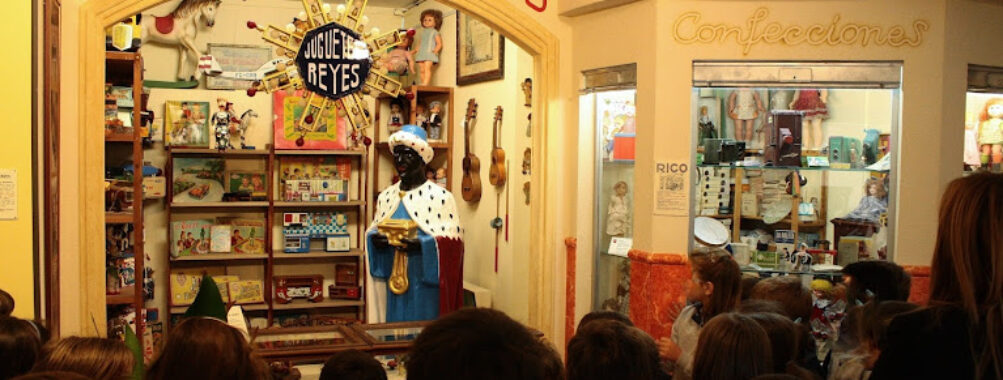
Museu Escolar de Puçol
“`html
Table of Contents
Description
The Museu Escolar de Puçol in Elche, Spain, is far more than a traditional museum—it’s a living educational project with roots that go back to 1968. Born out of the idea of using everyday objects, oral histories, and traditions as teaching resources, this school museum grew into what is now recognized as an important ethnographic collection. Visitors here don’t just walk through exhibitions, they get a sense of rural life, trades, and customs that shaped the region of Elche over decades. It’s a place that safeguards over 100,000 items, from tools once used in agriculture to handmade crafts and even personal artifacts that carry an incredible sense of intimacy. Those who come often remark that the museum doesn’t just preserve history—it breathes life into stories from the past.
Travelers who enjoy learning about local culture will find this project impressive because it isn’t staged or overly polished. Instead, it has a raw, genuine feel. One of its most remarkable achievements is being officially recognized by UNESCO as a model of good practice in safeguarding intangible cultural heritage. This recognition alone underscores its global importance, but experiencing it firsthand is something completely different—it feels humble yet powerful in how it portrays traditional culture. While some visitors expect a conventional museum format, the Museu Escolar de Puçol thrives because it is deliberately different from that model. It is interactive, memory-driven, and focused on both education and cultural preservation.
The project thrives thanks to generations of students and teachers who helped build its exhibits year after year. That’s one of the aspects that makes it unique—you’re not just witnessing curated displays, you’re seeing the product of community effort, memory preservation, and storytelling. For family travelers or those passionate about anthropology or heritage, it’s a destination worth planning time for. Sure, there might be areas that feel a little rustic or maybe less polished than bigger museums in Alicante, but many visitors find that to be part of its charm. It captures the spirit of rural life, the voices of elders, and centuries of local traditions in a way that feels authentic and unfiltered.
Key Features
- Collection of around 100,000 artifacts, from agricultural tools to personal items of everyday life
- Recognized by UNESCO as the first European educational project to safeguard intangible cultural heritage
- Living ethnographic museum that integrates culture directly into education
- Focus on rural trades, crafts, and oral histories that would otherwise risk being forgotten
- Family-friendly environment that encourages participation and storytelling
- Wheelchair accessible facilities, including entrance, parking, and restrooms
- Provides guided experiences, workshops, and interactive educational activities
- One of the few museums in Spain sustained through local school projects and community-driven passion
Best Time to Visit
The timing of your visit can really shape your experience. Spring and autumn are arguably the best times to come, when the weather in Elche is more comfortable for exploring both the museum and the surrounding countryside. Summer can be hot—sometimes overwhelmingly so if you’re not used to Mediterranean heat—but if you’re prepared with water and light clothing, that season has its perks too. The museum environment itself is indoors, which helps, but wandering around the rural area is part of the experience. Winter can be quieter, with fewer tourists, and that sometimes allows for a more personal, unrushed engagement with the collections. If you value authenticity over crowds, the cooler months might be your favorite window for visiting.
How to Get There
Getting to the Museu Escolar de Puçol requires a little planning since it’s located in a rural hamlet outside of central Elche. Public transportation options don’t run as conveniently here as they do in the city center, so having a car is really the easiest way—especially if you’re hoping to pair your museum visit with a countryside drive or a stop at Elche’s famous palm groves. Taxis are another option from Elche, though they can be pricier. If you’re staying nearby and like cycling, the rural landscapes make for an enjoyable route, albeit one that might feel long in the summer sun. Think of the journey as part of the adventure—by the time you arrive, you’ll understand why the project is so deeply tied to its rural roots.
Tips for Visiting
For anyone planning a trip to this school museum, it helps to go with an open mind. This is not a polished urban museum with cutting-edge displays, but rather a cultural center filled with memory, passion, and authenticity. Here are a few practical tips that will make your visit even smoother:
- Plan ahead for opening hours. Since it is an educational project, schedules can vary depending on school activities or workshops taking place.
- Take advantage of guided experiences. Having someone explain the items and stories behind them makes the visit far more powerful.
- Bring water and snacks. There isn’t a restaurant on-site, though restrooms are available. Rural picnics can be a memorable part of the trip.
- Consider kids’ interests. Children often enjoy learning about how school and everyday life looked in the past—especially when they can handle old tools or hear stories from the community.
- Dress for the rural setting. Comfortable shoes are a must if you plan to wander in the area around the museum.
- Take it slow. The Museu Escolar de Puçol rewards curiosity—ask questions, linger over objects, and reflect on the way traditions shape today’s world.
All in all, the Museu Escolar de Puçol in Elche, Spain, makes for a thought-provoking and intimate experience. It doesn’t need grand architecture or flashy exhibitions to impress—it creates meaning through authenticity. For visitors hungry to connect with local traditions, heritage, and the everyday culture of rural Spain, this school museum quietly makes a bigger impact than many might expect.
“`
Location
Places to Stay Near Museu Escolar de Puçol
Find and Book a Tour
Explore More Travel Guides
No reviews found! Be the first to review!